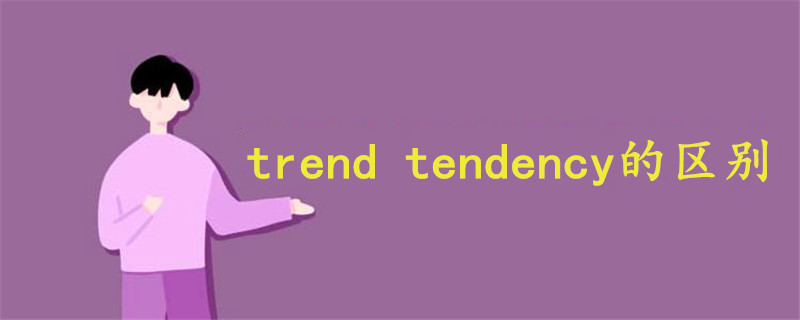trend和tendency的区别:意思不同、词性用法不同、侧重点不同。trend可作名词和动词,含义有趋势、倾向,侧重于指整个群体受引导的偏向;tendency作为名词,含义有偏好、趋向等,侧重于指没有外来因素影响的偏向。

一、trend的中文含义及用法介绍
1、可作名词,含义有趋势;趋向;倾向;动态;动向。
例句:There is a growing trend towards earlier retirement.
提早退休者有增加的趋势。
The underlying trend of inflation is still upwards.
通货膨胀的潜在趋势仍然是上升的。
The book provides valuable information on recent trends.
此书就近来的发展趋势提供了宝贵的信息。
This year saw a continuation in the upward trend in sales.
今年销售呈持续增长的趋势。
2、还可作动词,是不及物动词,含义有倾向;趋势。
例句:My opinion trended towards yours.
我倾向于你的意见。
This trend is being reversed.
这种倾向正在向相反的方向转变。
In these two trends, the later is more popular.
在这两种倾向中,趣味化是更为迅猛的潮流。
二、tendency的基本释义及用法介绍
tendency作为名词,含义有倾向;偏好;性情;趋势;趋向;(政党内的)极端派别。
例句:I have a tendency to talk too much when I'm nervous.
我紧张时总爱唠叨。
There is a growing tendency among employers to hire casual staff.
雇主雇用临时职员有增加的趋势。
There is a tendency for this disease to run in families.
这种疾病易在家族里遗传。
She has a strong natural tendency towards caution.
她天生非常小心谨慎。
The tendency to become obese is at least in part hereditary
发胖至少有一部分是源于遗传。










